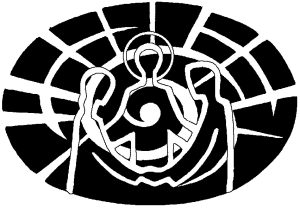Trinity 11 – 28th August 2022 – Year C – Rev Alison Way
Proverbs 25:6-7, Luke 14:7-14
In the name of the Father, the Son and The Holy Spirit, Amen
One of the keys to understanding, the teaching of Jesus we have just heard is where Jesus was when this happened. A few verses before where we start, two things have been revealed. Firstly, Jesus was in the house of the leader of the Pharisees, having a meal on the Sabbath. That is quite startling! That the leader of the Pharisees had invited him in the first place. This was a big risk for that leader – and many others would not have approved of that choice. Yet one of the best ways to get to understand someone is to sit and eat with them. Clearly this leading pharisee was curious and wanted to understand more about Jesus.
The second thing we didn’t hear but precedes this, is that Jesus had healed a man with dropsy on the Sabbath. He had asked his hosts – Is it lawful to cure people on the sabbath or not? And they had remained silent. So Jesus had healed him and sent him on his way. I suspect this must have been pretty uncomfortable for the hosting Pharisee leader and Jesus then does not mince his words before turning his attention to humility and hospitality, where he said to those gathered with him to eat (the leader of the Pharisees and his guests) – If one of you has a child, or an ox that has fallen into a well, will you not immediately pull it out on the sabbath day? and again they didn’t respond.
We are not regular guests of Pharisees, so we don’t have a great deal of experience of the complex web of social niceties and conventions! This kind of meal was a big deal. Guests arranged around U-shaped tables, were defined by social order, around the host at the bottom of the U. Those nearest to the host were the most important. Therefore, it was obvious who was important and who less so. Time was taken over the food and then teaching and dialogue. With an invitation of this sort it was usual to respond in kind. Those gathered would have known the proverb we heard about the honour of being asked to move closer and the shame of being moved to the edge of the table and conversation.
In the gospel we heard, Jesus suggests something that is subtly different to start in a lowest place at a gathering like this, and then be encouraged to move to a high place by the host. He is not wanting people to think of themselves more highly than they should. For all who exalt themselves will be humbled and those who humble themselves will be exalted. Hidden beneath the surface here is also a reference to the song of Mary when she is called by God (The Magnificat from Evensong). He has brought down the powerful from their thrones and exalted the lowly. The same word is used for lowly as those who humble themselves in our passage.
Being humble and the quality of humility, are both important Christian teachings. Humbleness is the state of being modest and lacking in pride or arrogance:. Christian humbleness includes – Understanding ourselves in relation to the wonder and awesomeness of God, that should help us not to get too puffed up with our own self-importance. Like a number of things today, we don’t tend to value humility as we should. And tend to think it is all rather Uriah Heap like (The Charles Dicken’s character) and being ever so humble. Humility is firstly deeply under rated and widely misunderstood.
Here are some reflections on what humility really means in Biblical terms
-
Humility is a freedom from arrogance that grows out of the recognition that all we have and are comes from God.
-
The Greek philosophers despised humility because to them it implied inadequacy, lack of dignity, and worth-lessness.
-
This is not the meaning of humility as defined by the Bible. – Jesus is the supreme example of humility – He is completely adequate and of infinite dignity and worth.
-
Biblical humility is not a belittling of oneself (but an exalting or praising of others, especially God and Christ).
-
Humble people focus more on God and others than on themselves.
-
Biblical humility is also a recognition that by ourselves we are inadequate, without dignity and worthless. Yet, because we are created in God’s image and because believers are in Christ, we have infinite worth and dignity.
-
True humility does not produce pride but gratitude.
-
Since God is both our Creator and Redeemer, our existence and righteousness and our very being depends on him.
 We need to work on and aspire to humbleness and humility, to help us keep a balance and the self-seeking and promoting sides of our personalities in check. It is pretty constant in Luke that the theme of reversing social status is present. In the world Jesus brings, social status and wealth are not the markers of how important we are. God’s standard is about the quality of our loving response to his love for us. We should not be in the humbling and humiliating business but building each other up in love, and developing our understanding of God’s love for us and the value of humility in our hearts and lives.
We need to work on and aspire to humbleness and humility, to help us keep a balance and the self-seeking and promoting sides of our personalities in check. It is pretty constant in Luke that the theme of reversing social status is present. In the world Jesus brings, social status and wealth are not the markers of how important we are. God’s standard is about the quality of our loving response to his love for us. We should not be in the humbling and humiliating business but building each other up in love, and developing our understanding of God’s love for us and the value of humility in our hearts and lives.
End with a silence to ponder and a prayer
SILENCE
Father, In Micah 6:8 You say, “O people, the LORD has told you what is good, and this is what he requires of you: to do what is right, to love mercy, and to walk humbly with your God.” Today we choose to walk humbly with You. We choose to live by Your Holy Spirit and to follow Your lead. Help us to hear You clearly, for we do not want to walk by pride or self-sufficiency, we want to walk with You. In Jesus name, Amen
References: https://www.dictionary.com/browse/humbleness, The New Revised Standard Version (Anglicized Edition), copyright 1989, 1995. Connections – A Lectionary Commentary for Preaching and Worship – Edited by Joel Green et al https://www.crosswalk.com/faith/prayer/beautiful-prayers-for-humility.html






